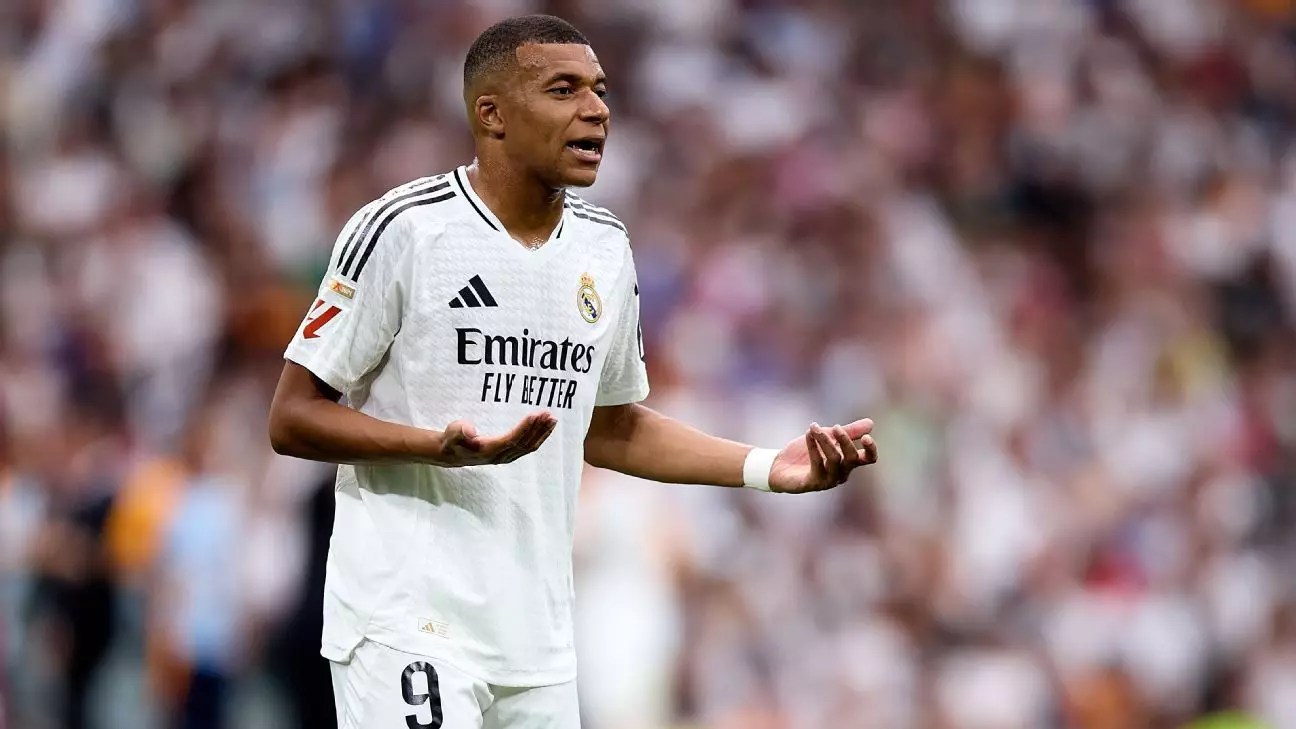The world of football is often characterized by intense scrutiny, especially when iconic figures like Kylian Mbappé are involved. Recently, both France’s national coach Didier Deschamps and midfielder Aurélien Tchouaméni found themselves in the spotlight as they attempted to clarify the situation surrounding Mbappé’s absence from international duty. This article examines the implications of this controversy and its potential impact on the French national team as well as on the player’s relationship with both club and country.
Kylian Mbappé, one of football’s biggest stars, sustained a thigh injury during Real Madrid’s fierce La Liga encounter against Alavés on September 24. The injury, initially reported to sideline him for approximately three weeks, kept him out of the France squad for key matches against Israel and Belgium. However, the unexpected return of the player for Madrid soon after stirred a cauldron of criticism. The fact that he played as a substitute against Lille and started in a subsequent match against Villarreal caused many fans and pundits to question his commitment to the national team.
Deschamps, in a press conference, was quick to dismiss suggestions that Real Madrid exerted pressure on Mbappé regarding his international duties. He asserted that the decisions made regarding Mbappé’s omission were based on medical information and the player’s fitness levels. Deschamps emphasized that the situation was not merely a Madrid phenomenon, hinting that such issues are commonplace across many clubs and national teams.
The Role of Tchouaméni
In an effort to further address the controversy, Aurélien Tchouaméni weighed in on his teammate’s situation. He highlighted that conversations with Mbappé and fellow teammate Ferland Mendy had not revealed any pressure being applied from the club. Tchouaméni’s words were a testament to the close-knit nature of the team and their mutual trust, but they also underline the complexity of balancing club and international obligations in modern football. As a rising star who has already made a significant impact for France, Tchouaméni’s perspective carries weight. He has been entrusted with the captaincy for the upcoming match against Israel, an indication of his growing importance within the squad.
Compounding the tension surrounding the team has been the media coverage of the players’ appearances as they arrived at Clairefontaine. An incident involving Liverpool defender Ibrahima Konaté, who wore a hood obscuring his face, has led to rebuke from former players, stressing the importance of professionalism. Jerome Rothen, a voice in the media, declared the situation “a circus,” questioning Deschamps’ acceptance of such casual behavior. Conversely, defender Jules Koundé defended his peers, arguing against the exaggerated criticism they faced.
This focus on players’ attire underscores a growing concern in professional sports about image and professionalism. While some may dismiss these concerns as petty or trivial, they reflect larger discussions about how athletes represent themselves and their countries, reminding us that behavior both on and off the field attracts scrutiny in equal measure.
As France prepares for their international fixtures, the narrative surrounding Mbappé’s absence could have ripple effects on team morale and dynamics. Players often experience psychological pressure to balance their allegiances to club and country, and Mbappé’s situation has spotlighted this challenge. Tchouaméni’s new captaincy and the responses of other players may prove crucial as the team navigates potential distractions from their on-field objectives. The balance between club loyalty and national pride remains a delicate one, and maintaining cohesion during challenging times is essential.
The debate surrounding Kylian Mbappé’s absence from the French national team amidst his recovery underscores the pressures modern footballers face on multiple fronts. With assertions from both Deschamps and Tchouaméni refuting claims of external pressure from Real Madrid, it seems the narrative is largely one of misinterpretation and excessive speculation. As the team faces upcoming matches, how they respond to these controversies will shape both their performance and public perception. Ultimately, it is vital for all parties involved to foster unity, prioritizing the objectives of the French national team while navigating the complex relationship with their respective clubs.


Leave a Reply